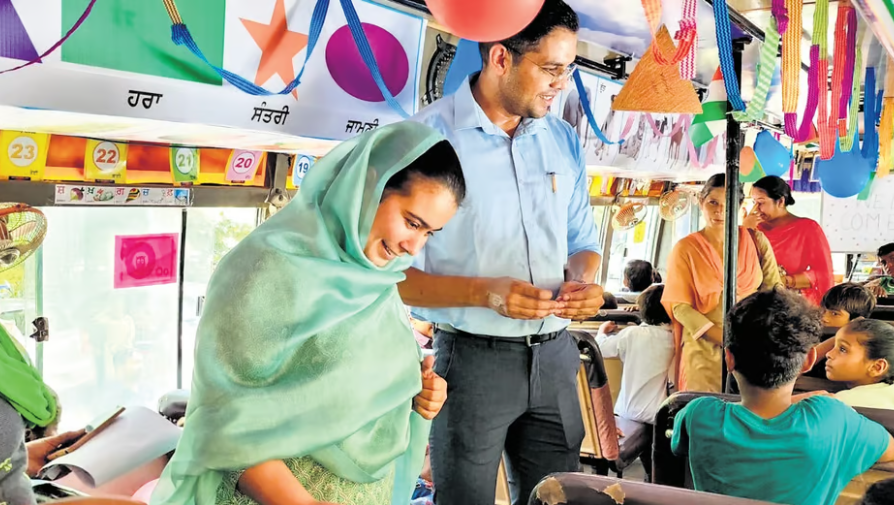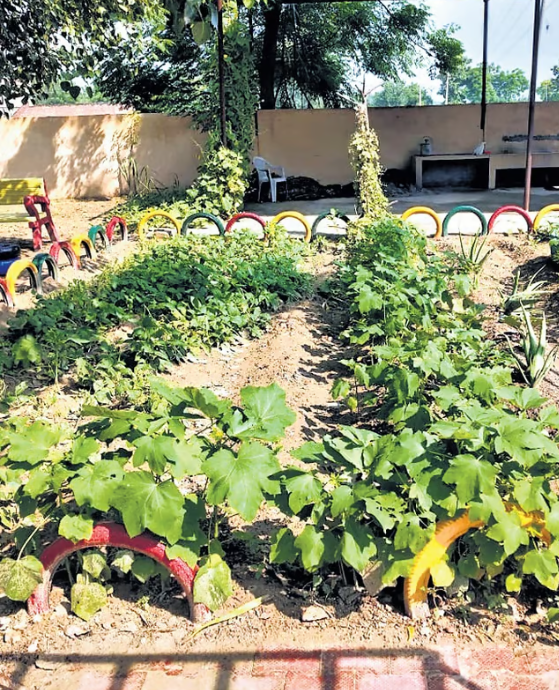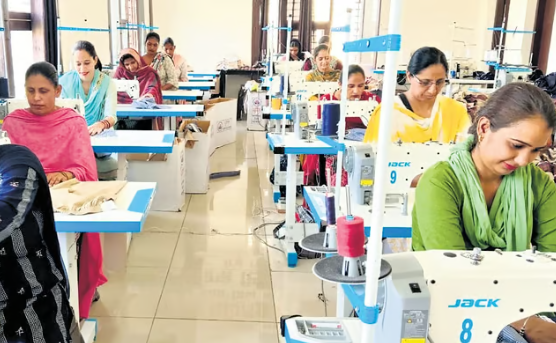Jitendra Jorwal has improved the lives of children and women in Sangrur through effective actions.

The welfare of children and women is crucial for the overall progress of any society. The well-being of children and women’s participation in the workforce positively impacts the economy.
Recognising this, IAS officer Jitendra Jorwal, who as deputy commissioner (DC) of Punjab’s Sangrur, had played a pivotal role in improving the lives of many children and women in the district.
When he joined Sangrur district administration as DC in 2022, his first priority was to assess the health of the children in the district. To do this, he initiated a health survey in government schools. The results were alarming — about 40% of 1,188 students studying in 21 government schools were found to be anaemic.
Anaemia is a health condition in which the body lacks enough red blood cells to carry oxygen to tissues, leading to various health problems, including stunted growth.
Since the condition is treatable, in 2023, Jorwal introduced changes to the mid-day meal programme, adding iron-rich foods and folic acid tablets to the diet. To ensure smooth implementation, teams were formed at block and district levels to monitor the distribution and consumption of these tablets, with regular reports sent to the deputy commissioner’s office every 15 days.
Quick and remarkable change
“Due to the regular supply of IFA tablets, it became a ritual among students and teachers to consume iron folic tablets after a mid-day meal. Also, the setting up of kitchen gardens in schools resulted in nutritious food intake. Consumption of these tablets and iron rich vegetables like spinach, methi (fenugreek), curry leaves, (and) drumsticks helped to curb iron deficiency,” said Jorwal.

The results were highly encouraging.
In another health checkup conducted in January this year, only 29 out of 1,073 students were found to be anaemic, Jorwal highlighted.
Now, the pilot programme is set to be replicated at the Anganwadi level (rural child care centre) and in all the primary and secondary schools across the district, he told The New Indian Express.
‘School on wheels’
The health survey also revealed that many children living in slums had either never been admitted to or were unable to continue their education in schools. To address this, Jorwal launched the school-on-wheels programme, called Gyan Kirnan di Choh (touching the rays of knowledge), for out-of-school children.
The programme introduced children aged 5 to 11 to education, allowing them to spend three to four hours on a bus experiencing joyful learning. Activities such as storytelling and exposure visits filled the children’s time on the bus, helping them learn in a fun and stress-free environment.
As part of this initiative, a yellow school bus picks up about 30 children from the slums daily, drives them around and then drops them back home. The bus is equipped with teaching materials, books, and an interactive, colourful interior. A teacher is also present to impart basic education, along with two aanganwadi workers who assist with taking care of the children.

Jorwal explained, “Enrolling students directly in regular schools would not foster learning, and the cycle of dropouts and re-enrollment would never end. These children needed an environment where they felt they belonged to the education system and could learn at their own pace. To achieve this, we came up with ‘School on Wheels’ programme.”
Soon after, the district administration, along with the Education Department, launched an enrollment drive. As a result, 53 children from Sangrur and 24 from Dhuri block were enrolled in primary schools.
Women empowerment
Another significant initiative is the stitching of school uniforms under the Promoting Employment of Households through Entrepreneurship and Livelihood (PEHEL)programme.
The government pays Rs 600 for each uniform kit, and the school management committees are empowered to source such uniform kits from vendors of their choice. In Sangrur district, such uniform kits are prepared by women belonging to Self Help Groups (SHGs). This not only provided livelihood opportunities for rural women but also promoted women’s empowerment.
Seeing its success, the government decided to adopt and implement this model across the state in 2023.
In Sunam, Sangrur, a block-level federation (BLF) called Shaheed Udham Singh Mahila Block Sangathan, involved 167 women in stitching 6,900 school uniform kits for 88 government schools. A hosiery unit for manufacturing school uniforms was set up by the BLF of Sunam in Akalgarh village, provided by the panchayat. Each woman was paid Rs 190 per uniform (Rs 60 as fixed stitching charges and Rs 130 as profit), with one to two uniforms stitched per day.
“Women have the flexibility to either stitch uniforms at the center, where sewing machines have been installed, or take raw material kits home and return the stitched uniforms. Quality of school uniforms improved significantly as per the feedback from students and SMCs. The women gained confidence and exposure to the market.
Some of the SHG members have ventured into establishing stitching units of their own. This hosiery unit has now expanded to manufacture uniforms for private schools, private security firms, police department, private companies etc, thus increasing the ambit of the employability of the women,’’ said Jorwal.
Article Credit: newindianexpress